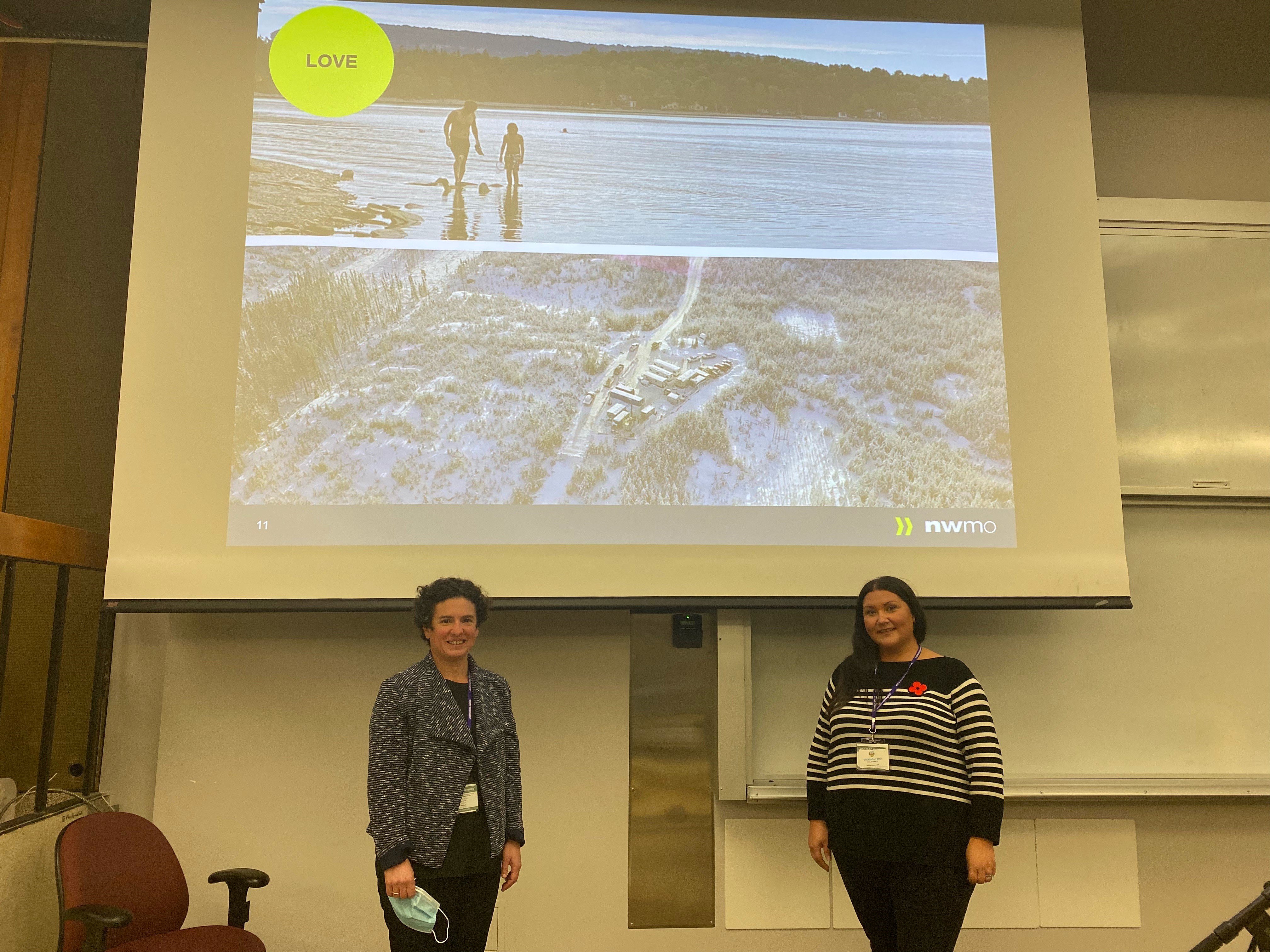At a recent conference in London, Ont., hosted by the Geological Association of Canada and the Mineralogical Association of Canada, the Nuclear Waste Management Organization’s (NWMO) Jessica Perritt and Sarah Hirschorn presented a plenary lecture on interweaving Indigenous Knowledge and western science. They spoke about how applying Indigenous Knowledge to a traditionally western science focused industry has improved the quality of our technical work and our ability to engage with communities.
Their lecture focused on applying the seven sacred grandfather teachings of love, trust, honesty, humility, respect, bravery, and wisdom to the NWMO’s work on the safe, long-term management of used nuclear fuel.
“Interweaving knowledge systems is like braiding sweetgrass,” said Ms. Perritt, Section Manager of Indigenous Knowledge and Reconciliation at the NWMO. “It is about bringing knowledge systems together to complement each other. Neither is superior to the other, and in braiding them together, we make the whole stronger.”
The seven sacred grandfather teachings are a way of living within Indigenous worldview that provides a set of virtues on how to live a healthy and balanced life.
“Looking at our work through the lens of the seven sacred teachings reveals a lot of similarities to what we understand from western science,” said Ms. Hirschorn, Director of Geoscience at the NWMO. “We rely on experts in western science to inform our understanding of the rock and water in the areas we are studying, and we can also rely on expertise from Indigenous Knowledge Keepers and Elders to teach us their knowledge system and ways of knowing.”
Within Indigenous worldview, the rocks are referred to as grandfathers. This is a way of describing the generational knowledge they carry. In the context of geoscience, the NWMO’s approach to site characterization activities has been expanded by the knowledge that both western science and Indigenous Knowledge rely on the rocks (grandfathers) and their relationship to water to pass on that knowledge and inform the NWMO’s work.
Knowledge from Indigenous worldview has also helped the NWMO better understand what successful partnership with Indigenous communities might look like – things like the need for Indigenous voices to be elevated, breaking down misconceptions, and being open to new ways of understanding.
The NWMO is working to interweave these knowledge systems into all aspects of our work as we continue to develop our understanding of the geosphere – and its evolution over time – in the potential siting areas that could safely contain and isolate Canada’s used nuclear fuel.
About the NWMO
The Nuclear Waste Management Organization (NWMO) is a not-for-profit organization implementing Canada’s plan to safely contain and isolate used nuclear fuel inside a deep geological repository in a manner that protects people and the environment for generations to come.
Canada’s plan will only proceed in an area with informed and willing hosts, where the municipality, First Nation and Métis communities, and others in the area are working together to implement it. The NWMO plans to select a site in 2023, and two areas remain in our site selection process: the Ignace area and South Bruce, both in Ontario.

